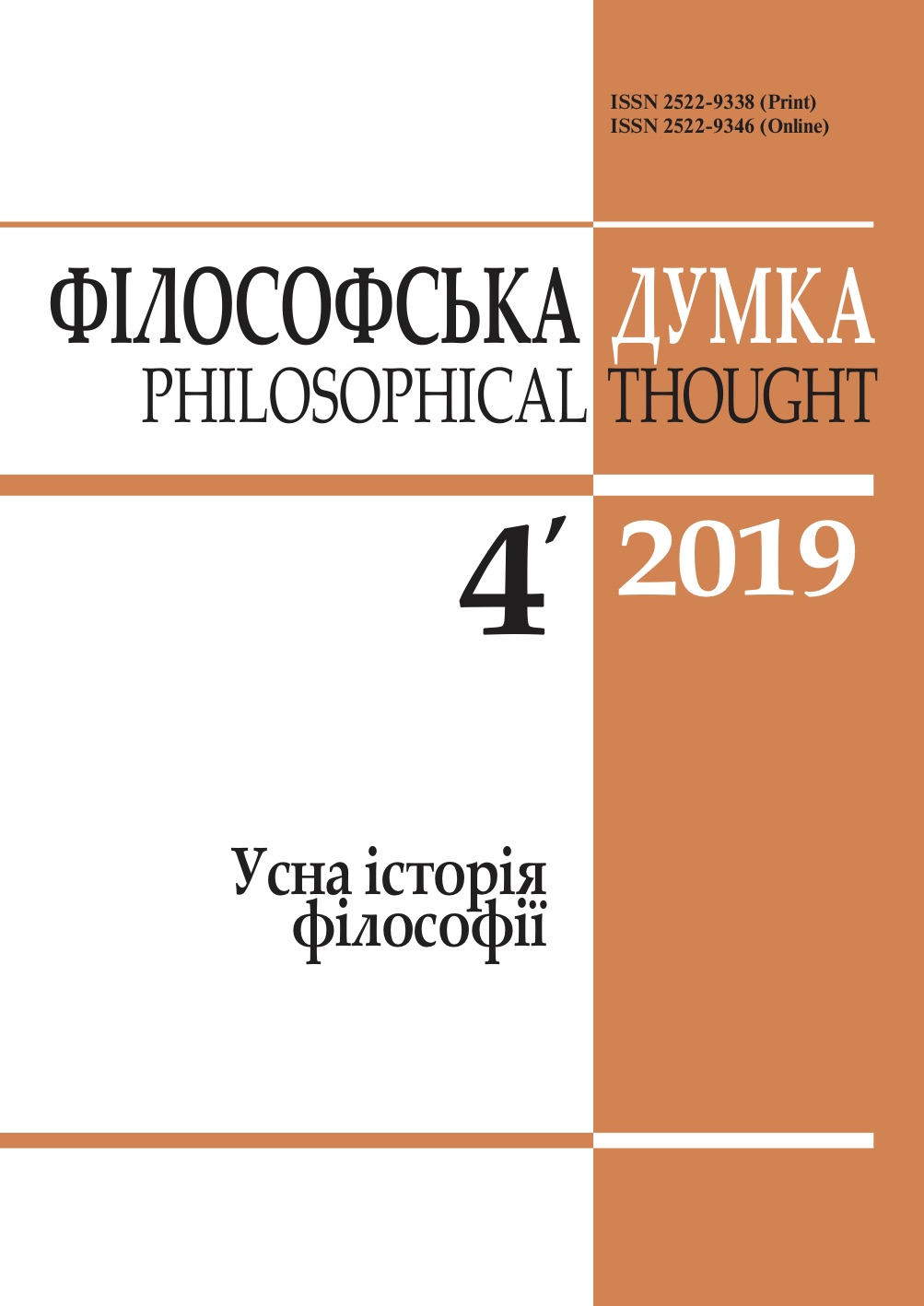The phenomenon of call: voices and silence in the experience of calling
DOI:
https://doi.org/10.15407/fd2019.04.093Keywords:
calling, call, voice, silence, sensing of oneself, existential truth, responsibilityAbstract
The article deals with the analysis of the experience of calling in the existential and phenomenological aspects. The phenomenon of call revealed in the experience of sensing and understanding of human being towards the world and as an event of a personal existence. The study proves that calling responds to the human need of going over the limits of own self towards the co-existence with people, serving the life-work and the ideals. The author analyses the problem of existential and religious truth.
The research discovers the meaning of voices and silence in the phenomenal field of calling. Analyzed the difference between the vocal and visual experience, between the feeling and seeing, the necessity of organization of a sound being in human self-consciousness. The meaning of silence is explicated as an internal space of human experience. Silence is researched as an existential phenomenon, as a special mood making possible for a personality to experience the fullness of being. Silence is revealed as an existential dimension of the origin of language, of the voice of conscience and as a reality of the experience of responsibility of a personality. Therefore, in silence takes place sensing of oneself and occurs the revelation of a call for a person.
References
Bystrytskiy, Ye.K. (2018). Еxistential truth and “post-truth”. [in Ukrainian] Philosophical thought, 5, 54-71. [=Бистрицький 2018].
Heidegger, M. (1991). Saying of Anaximandr. In: Heidegger, M. A conversation on a country road. (pp. 28-68) [in Russian]. Мoscow: Vysshaya shkola. [= Хайдеггер 1991].
Heidegger, M. (1997). Being and time. [in Russian]. Мoscow: Ad Marginem. [= Хайдеггер 1997].
Heidegger, M. (2007). On the way to language. [in Ukrainian]. Lviv: Litopys. [=Гайдеггер 2007].
Каggе, Е. (2017). Silence in the Age of Noise / tr. from English J.Lebedenko. [in Ukrainian]. Kharkiv: Club of family leisure. [=Каґґе 2017].
Kierkegaard, S. (1993). Fear and trembling / tr. From Danish. [in Russian]. Мoscow: Respulica. [=Кьеркегор 1993].
Kierkegaard, S. (2005). Concluding unscientific postscript to philosophical fragments / tr. from Danish of N. Isaeva, S. Isaev. [in Russian]. St. Petersburg.: St.-Petyerburg University. [=Кьеркегор 2005].
Muliarchuk, Ye. І. (2017). On the concept of calling. [in Ukrainian]. Philosophical thought, 3, 94-106. [=Мулярчук 2017].
Pascal, B. (1994). The thoughts / tr. from French О.Khoma. [in Russian]. Кyiv: REFL-book. [=Паскаль 1994].
Sartre, J. P. (2002). Being and nothing: Experience of phenomenological ontology / tr. from Fr. V. I. Koliadko. [in Russian]. Мoscow: ТЕRRА – Knizhnyi klub; Respublica. [=Сартр 2002].
Downloads
-
PDF (Українська)
Downloads: 663
Published
How to Cite
Issue
Section
License
Authors who publish with this journal agree to the following terms:
- Authors retain copyright and grant the journal right of first publication.
- Authors are able to enter into separate, additional contractual arrangements for the non-exclusive distribution of the journal's published version of the work (e.g., post it to an institutional repository or publish it in a book), with an acknowledgement of its initial publication in this journal.
- Authors are permitted and encouraged to post their work online (e.g., in institutional repositories or on their website) prior to and during the submission process, as it can lead to productive exchanges, as well as earlier and greater citation of published work (See The Effect of Open Access).


